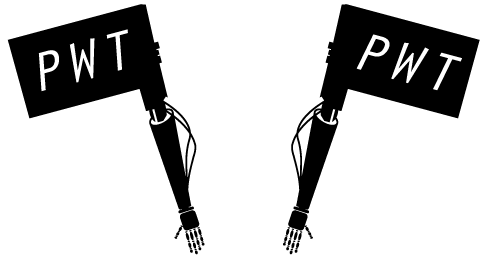Hospitalityscape
“Raves are about our future. They inspire us to become aware of ourselves, our surroundings and our humanity. They are about how we will come together as a species and how we will treat each other. We only need to remember that raves are NOT a way of life. They are a ritual” [Graham St John, 2009]
Based on Metamedia’s origins as a dance festival, Post Workers Theatre hosted a week-long workshop and free party to examine the political potential and creative collectivism of rave culture. Looking at the radical history of rave(ing) as part of the struggle for rights and freedoms outside of the increased privatisation and individualization of society.
Rave of the Ritualesuqe was a week-long workshop and free party to examine the political potential and creative collectivism of rave culture. Hosted by Meta Media Association in partnership with the Department of Visual Communications (UMAS) and with Design students from across Europe. The workshop and audio-visual performance focused on the radical history of rave(ing) as part of the struggle for rights and freedoms outside of the increased privatisation and individualization of society.
The workshop referenced the history of industrial music and its relationship to work, from Detroit Techno and the collapse of the U.S auto industry to Throbbing Gristle who used exaggerated sounds from working environments to agitate and confront industrial decline in 70s Britain. Asking participants to reimagine past industrial music to frame Pula’s contemporary service industry landscape we used listening activism, field work, public engagement and multimedia performance to explore how rave can become an enactment of a common struggle.
Hospitalityscape Projects:
The Carnivalesque:
Mixing live performance together with recordings of voices and interactions from the city’s market, the Carnivalesque hypothesised the city functioning as a seasonal day-to-day performance, where tourists participate in an evolving carnival of hedonistic events and actions.
Paradox:
Paradox embodied the dissonant relation of tolerance and economic reliance between the local community and tourists. Field recordings of interviews from both groups begin to merge, translated into a dance choreography where orderly walking morphs into a chaotic mosh.
The Pyramid Club:
The Pyramid Club investigated the now closed Pyramid club, activating its sonic properties as a derelict building alongside interviews and online evidence of divided opinion over its time as a popular, local nightclub destination.
PWT identified key locations within Pula that have become symbolic of the region's economic transformation; its history of being a key industrial hub, such as the Uljanik Shipyard, its demise, loss of jobs and emergent service based economy supported by precarious seasonal employment.
Participants were asked: ‘What does hospitality sound like’ and were sent out into the city to make field recordings and gather diverse sounds as a way to confront the contradictions and complexities this question contains. Through an intensive production process, participants learnt how to use hardware samplers, modular synth effects and digital editing software in order to construct sonic social documents in the form of rave music. Performances were then designed around foley sounds made from found objects which were woven into field recordings and interviews alongside dance music samples, creating a live theatrical experience at Club Kotać engaging with the city, its hospitality and labour history.
Ulanjik:
Ulanjik investigated the once prominent shipyard in Pula, now insignificant to the city’s economic development. Interviews with current employees merged with soundscapes of a site once full of the sounds of work, industry and economic stability.
Sweaty Buoy:
Sweaty Buoy contrasted the experiences of local maintenance workers and the expectations of visiting tourists considering the tensions that occur when these groups meet, and how these tensions can be portrayed with music, found objects and image theatre.
Participants: Ivan Đukez, Marija Mučić, Nabil Nazem, Adam Tuna, Maria Jovanovac, Marija Nikić, Ema Čimbur, Nikola Stamenković, Melina Marija Kiković, Hana Miličević, Mia Šabanović, Lara Vondraček, Sara Gurdulić, Nastasja Miletić, Esma Hajdarpašić, Fotina Duni, Josh Coates, Milica Denković, Petra Guljaš, Valentina Tamiazzo
